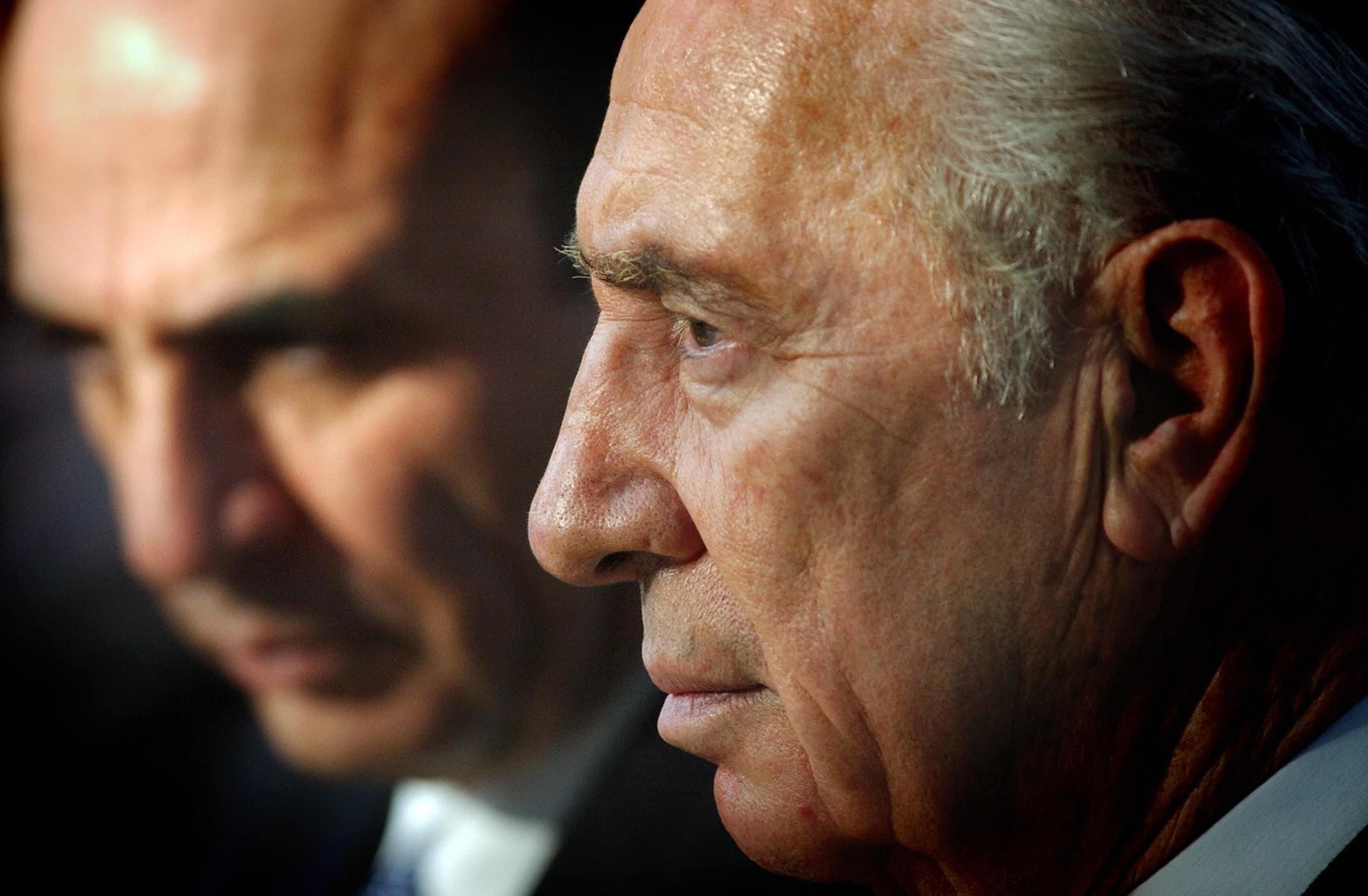
Shimon Peres was not only a statesman, he was also a symbol, but not in the conventional way reflected in many of his obituaries. In his seventh decade in Israeli politics, stripped of conventional political power, he became the kosher house-leftist at a time when the right had conquered all before it.
This role was one perhaps only he could play, but understanding why Israeli voters wanted, and indeed needed him to play it, may just help the country turn away from the dangerous path it is currently on.
Despite the Israeli electorate moving further to the right during Peres's time as president, he—a left leaning optimist—suddenly became a highly popular figure. His dogged positivity and belief that peace could come seemed to inspire most Israelis, regardless of whether they elected a government supportive of that vision.
In the cynical, joyless wasteland of contemporary Israeli politics, where Benjamin Netanyahu exaggerates Israel's genuine threats in order to maintain a fearful electorate, Israeli leaders must acknowledge the reasons for the popular support of Shimon Peres as president and statesman, where he fulfilled an odd but pivotal role within Israelis' collective psychology.
People needed the spiritual nourishment of his words, which were so at odds with the thin gruel being served by the Israeli right-wing. This observation, that Israel—as much an idea as it is a country—needs a vision, not just a strategy of deterrence, is critical in understanding how progressive, moderate politicians might win once again in Israel, and how hopes for a renewed drive toward peace might be launched.
Peres was not always popular. He made many mistakes—both ethical and political—and he famously never won an election as a party leader. Yet he nevertheless enjoyed a high water mark of a staggering 85 percent approval rating whilst president. Eight-five percent of Israelis cannot agree that the sun rises in the East, so for a society that was voting more right-wing than at any time in its history to support the Left's most totemic living figure was truly remarkable.
He giddily met with Muslim faith leaders and Arab political figures, talking wide-eyed about peace and cooperation. He defended Palestinian President Mahmoud Abbas on several occasions when the Israeli government attacked him, and he traveled to the Gulf in order to speak to Arab students about peace and the regional opportunities it could unleash.
And Israelis loved him for it.
There is a phrase in the Bible: "When there is no vision, the people perish," and it was Peres's distinctly optimistic vision that allowed him to build such popular support at the end of his life. He understood that if you want Israelis to demand an end to an occupation that will be 50-years-old next year, you need to paint a vivid and compelling vision of what comes afterwards, and you need to appeal to their sense of pioneering creativity and ingenuity. Peres, despite his faults, refused to become a prisoner of fear, paranoia or victimhood.
That is precisely the approach that a new generation of Israeli leaders must embrace. One that rejects fundamentally the poverty of hope inherent in Israel's right-wing, and instead sketches out an optimistic, positive—but realisable—idea of what Israel could be, and then shows people the incremental path towards it, and the role that they can play as citizens.
However, such a movement must learn from the mistakes of Peres and his generation, particularly the haughty elitism. After all, he only became genuinely popular for the first time in his life when he became president and consciously transcended the factionalism of the Knesset, positioning himself as leader of all Israelis, not just the high-minded, sometimes snobby Ashkenazi elite to which he belonged.
Groups such as Darkenu—meaning "our way"—are leading the way in remaking this broken Israeli social and electoral map, and have already signed up hundreds of thousands of supporters from every part of Israel's diverse socio-economic, religious and political patchwork society. If a coalition can be built around a vision of the future rather than a fear of the recent past, then a different sort of Israel, built on values of tolerance and democracy, dedicated to ending the conflict with Israel's neighbours, can emerge.
Shimon Peres leaves behind a country at a crossroads, awaiting its next chapter and Israel's very first without him as a protagonist. The urgent decisions Israelis must make if a two-state solution is to be rescued are more pivotal than any Shimon Peres himself made. Yet, his faith that Israelis could and would make the right choice never, ever seemed to waver.
If the moderate majority hidden within a fractured and traumatised Israeli body politic can break free from this straitjacket, learn from his mistakes and build upon his insights, then the vision that Peres articulated may not perish after all.
John Lyndon is the Executive Director of OneVoice Europe, a global initiative working to create the conditions necessary for a just and negotiated resolution to the Israeli-Palestinian conflict.
Uncommon Knowledge
Newsweek is committed to challenging conventional wisdom and finding connections in the search for common ground.
Newsweek is committed to challenging conventional wisdom and finding connections in the search for common ground.
About the writer
To read how Newsweek uses AI as a newsroom tool, Click here.








